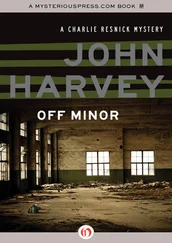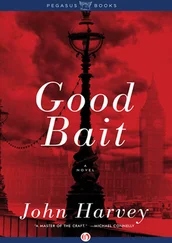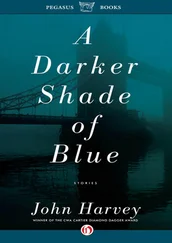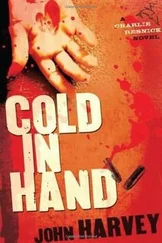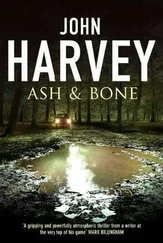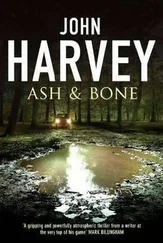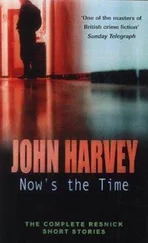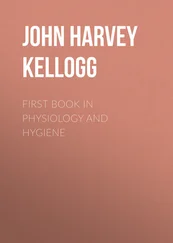John Harvey - Rough Treatment
Здесь есть возможность читать онлайн «John Harvey - Rough Treatment» весь текст электронной книги совершенно бесплатно (целиком полную версию без сокращений). В некоторых случаях можно слушать аудио, скачать через торрент в формате fb2 и присутствует краткое содержание. Год выпуска: 1990, ISBN: 1990, Издательство: Avon, Жанр: Полицейский детектив, на английском языке. Описание произведения, (предисловие) а так же отзывы посетителей доступны на портале библиотеки ЛибКат.
- Название:Rough Treatment
- Автор:
- Издательство:Avon
- Жанр:
- Год:1990
- ISBN:9780805054965
- Рейтинг книги:5 / 5. Голосов: 1
-
Избранное:Добавить в избранное
- Отзывы:
-
Ваша оценка:
- 100
- 1
- 2
- 3
- 4
- 5
Rough Treatment: краткое содержание, описание и аннотация
Предлагаем к чтению аннотацию, описание, краткое содержание или предисловие (зависит от того, что написал сам автор книги «Rough Treatment»). Если вы не нашли необходимую информацию о книге — напишите в комментариях, мы постараемся отыскать её.
Rough Treatment — читать онлайн бесплатно полную книгу (весь текст) целиком
Ниже представлен текст книги, разбитый по страницам. Система сохранения места последней прочитанной страницы, позволяет с удобством читать онлайн бесплатно книгу «Rough Treatment», без необходимости каждый раз заново искать на чём Вы остановились. Поставьте закладку, и сможете в любой момент перейти на страницу, на которой закончили чтение.
Интервал:
Закладка:
“Inspector?”
He closed the door and moved back towards the hall.
“Darling, do you realize what a new bathroom suite would cost?” Mrs. Lurie was asking her husband. “To say nothing of the redecoration. And that poky little room at the back, I can’t imagine what it could be used for, apart from storing things in boxes. What else could you get in there?”
“A cot,” Resnick said quietly.
“Sorry?”
“Nothing.”
Claire was looking at him from over the end of the banister rail.
“Darling,” said Mr. Lurie, pushing back the sleeves of his suit and shirt to show the face of his watch.
“Yes, of course. We have to dash.”
“Work, you see.”
“Work.”
They stood in the doorway, arms almost touching. “We’ll be in touch.”
“Of course,” Claire said.
“Thank you for letting us see the house.”
Resnick was on the point of telling them it had been a pleasure, but stopped himself with little difficulty.
The heavy door fitted solidly back against the frame.
“Has he really joined the ministry?” Resnick asked. “Albertson.”
“Anglican, I believe.”
For some moments they stood there, Resnick in the hallway close to the low table bearing a hat he almost never wore and a pile of old newspapers he’d been meaning to throw away, Claire with one hand on the dark brown banister while the other held the clipboard close along her thigh.
“I don’t know what makes people do things like that, do you?” she said.
“No.”
“D’you think they hear, you know, bells, voices?”
“The Sound of Music.”
“Running away.”
“Perhaps.”
She looked at him, considering. “Why do we do anything? Why, for instance, do you want to move from this house?”
“That’s difficult.”
“To explain or understand?”
“To explain.”
“But you do know?”
“Yes, I think so.”
“Well,” moving down the stairs, past him along the hall, “that’s all right then.”
At the door, she turned.
“They didn’t think much of it, did they?” Resnick said with the beginnings of a smile.
“They hated it.” Grinning.
“You think it’s saleable?”
She fingered the paper close by the door frame where it was coming unstuck from the wall. “Yes, I guess so. You might have to drop the price a little.”
“I already did.”
“I’m sure we can sell it.”
Resnick nodded, pushed his hands down into his trouser pockets and pulled them out again. A skinny cat, dove gray with a white tip beside its nose and another on the end of its tail, wound between the edge of the now open door and Claire’s boots.
“Is that yours too?”
“That’s Bud.”
“There was a tabby with a chewed-up ear asleep in the bowl inside the sink.”
“Pepper.”
“Three cats.”
“Four.”
She glanced down for a moment towards her clipboard, shifted the balance of her weight from one foot to the other. “Got to go.”
“There’s a set of keys at your office.”
“I suppose there is.”
“Anytime …”
“Right.”
“As long as you come with them.”
She looked up at him, almost sharply.
“I mean, I don’t want you just doling out the keys and letting people wander around.”
“No, no. Understood. We wouldn’t do that.”
Resnick nodded to show that he understood also.
Claire opened the door wide and went through on to the first step. “I’ll do what I can, Inspector.”
“Of course.”
“You just might need to be patient, that’s all.” Another step and then she swung her head back with a final grin. It wasn’t only that her smile was off-center, Resnick realized, she had a couple of teeth near the front that overlapped. “But you’re good at that, I’ll bet,” she laughed. “Being patient.”
It would have been easy to have stood in the doorway and watched her walk the length of the slightly meandering path, out through the gate and all the way to the car. Instead, Resnick went back inside, into the kitchen: one more cup of coffee for him to enjoy and Graham Millington to be thankful for.
The station at which Resnick was based was in the inner city, far enough from the center to feel its own identity, not so distant that it was like being in the sticks. North-east, between the fan of arterial roads, were turn-of-the-century terraced houses, infilled here and there with modest new municipal buildings and earlier, less successful, blocks of flats with linked walkways waiting to be demolished. Most of those living there were working-class poor, which meant they were lucky to be working at all: Afro-Caribbean, Asian, whites who had clocked in at the factories producing bicycles or cigarettes or hosiery, before those factories had been torn down to make way for superstores or turned into museums celebrating a lace-and-legend heritage. To the west was an enclave of Victorian mansions and tennis courts, tree-lined hilly streets and grounds big enough to build an architect-designed bungalow below the shrubbery and still have room for badminton. Once a year these people opened up their gardens to one another and served weak lemonade they’d made themselves, a small charge, of course, for charity. The only black face ever glimpsed belonged to someone cutting through or lost.
There was blood on the floor in the reception area, bright enough to be recent. A uniformed constable slid back the reinforced-glass panel as Resnick entered.
“Nosebleed?” Resnick asked, nodding towards the floor.
“Not exactly, sir.”
He pushed open the off-white door and at once he could hear the slow clip of a typewriter, several typewriters, the bright hiccup of telephones breaking into life, the low, persistent swearing of a man who knew four words and used them, without connection, over and over.
Resnick nodded at a WPC who went past with a woman leaning on her arm, a traveler of sorts, a few weeks here begging door-to-door and then, somehow, she would hitch a lift to another city, twenty miles distant, and do the same. Gone and then back. Today there was a dark swelling below her left eye, purple shading into black; the upper corner of the other eye was ridged with scabs that broke to leak a little pus. The policewoman walked her slowly, patting the back of her hand.
Resnick walked along the corridor towards the cells, turning into the first room, where the custody sergeant, crisp white shirt, neat dark tie, was entering an admission in his book.
At first it was difficult to tell whether the young PC or his prisoner was injured. A knife, its blade broken off an inch or so from the point, lay on the custody sergeant’s desk.
“Anything I can do for you, sir?” the sergeant inquired, continuing with his entry.
Resnick shook his head.
He could see now that most of the blood had come from the prisoner, a gash to the side of his head, another wound high beneath the soiled shirt that stuck to him like a bandage.
“He was brandishing a knife and making threats, sir,” the young constable said. He didn’t need to explain himself to Resnick, but he did need to talk. His face was bleached, unnaturally pale. “I told him to calm down, put down the weapon, but he refused. Carried on shouting and swearing. Offering to cut me open.”
The man was swearing still, less loudly, the intervals between each of his four words growing, so that just when it seemed he had stopped, run out of breath altogether, the next one would topple into place.
“Argument over the day’s cider supply,” put in the sergeant.
“It couldn’t have been much after nine o’clock,” Resnick said.
“Early risers, this crew.”
“While the rest of the world is polishing off its Shreddies.”
Читать дальшеИнтервал:
Закладка:
Похожие книги на «Rough Treatment»
Представляем Вашему вниманию похожие книги на «Rough Treatment» списком для выбора. Мы отобрали схожую по названию и смыслу литературу в надежде предоставить читателям больше вариантов отыскать новые, интересные, ещё непрочитанные произведения.
Обсуждение, отзывы о книге «Rough Treatment» и просто собственные мнения читателей. Оставьте ваши комментарии, напишите, что Вы думаете о произведении, его смысле или главных героях. Укажите что конкретно понравилось, а что нет, и почему Вы так считаете.



